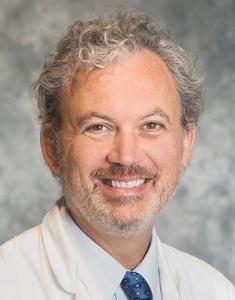It is not often you get a chance to learn a new skill when you are in the "midlife" of your career. However, that is exactly what I have been allowed to do recently, and it is one of the reasons I enjoy working at an academic medical institution so much.
For the past several years I have worked with the Duke Cancer Institute to create a Cancer Survivorship Clinic for the Duke University Health System. The concept had very modest beginnings in the sense that while I was working with the Duke urology and oncology faculty on prostate cancer screenings, we also began to think about how we could care for the increasing numbers of patients who were now living after cancer diagnosis and treatment.
From data that is been collected across the health system, from primary care providers in particular, we have noted that oftentimes these providers do not feel comfortable or confident taking care of cancer survivors. (In this case we were looking at survivors of head and neck cancer). This led to the idea that it would be worth training primary care providers to care for this subset of patients once they have completed active treatment.
Our research was supported by a 2006 Institutes of Medicine report which recommended that all patients who receive a cancer diagnosis have a survivorship care plan, also known as an SCP, in their health record. Given this new attention put on survivorship care it seemed like a good idea to move forward with creating a survivorship clinic, especially when there are going to be over 4.5 million prostate cancer survivors alone in the U.S. by the year 2026, according to cancer.org.
The Duke Cancer Survivorship Clinic went live about a month ago. Since then, I have not seen many patients but am learning a great deal about both the medicine of survivorship care and the special needs and concerns of this group. It is a very gratifying group of patients to be working with and it seem the patients are warm to the fact that the clinic is evolving.
The hope is that the data to emerge from this new service line will tell us how well we are doing and allow us to expand with other cancer groups. For now, I am excited to be moving into a new phase in my career.
John Ragsdale is interim chief of the Division of Family Medicine and vice chair for clinical service for the Department of Community and Family Medicine. Email john.ragsdale@duke.edu with questions.
Editor’s note: A member of the Division of Family Medicine leadership team guest blogs every month. Blogs represent the opinion of the author, not the Division of Family Medicine, the Department of Community and Family Medicine or Duke University.
